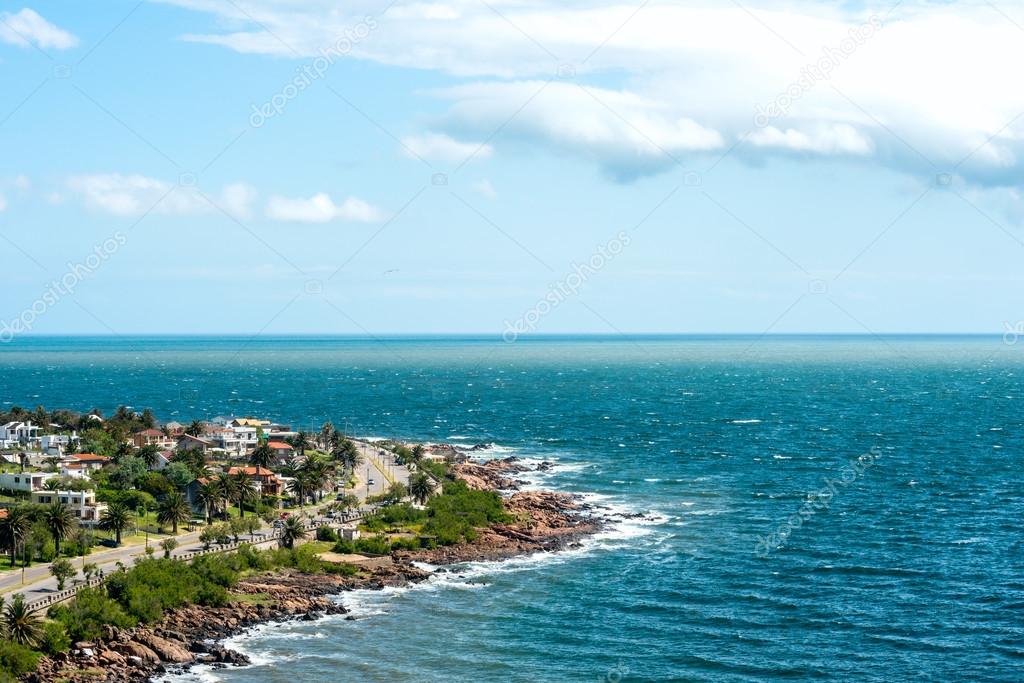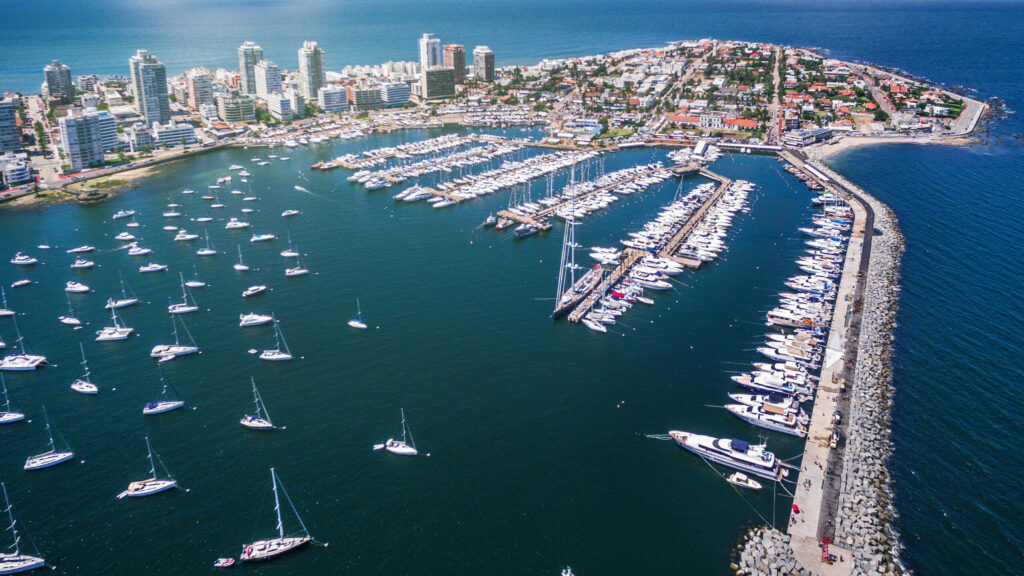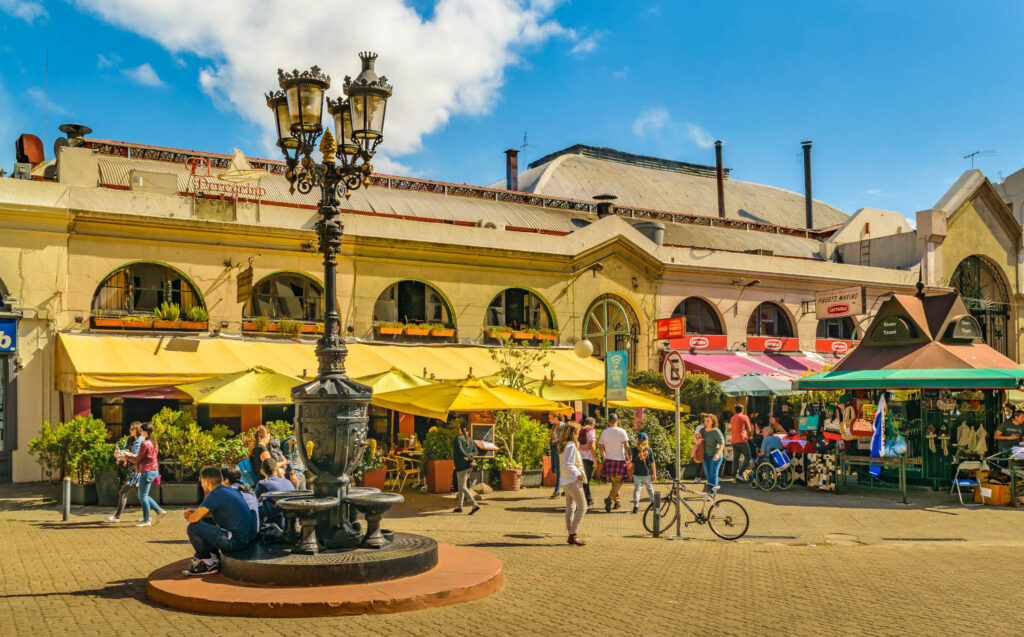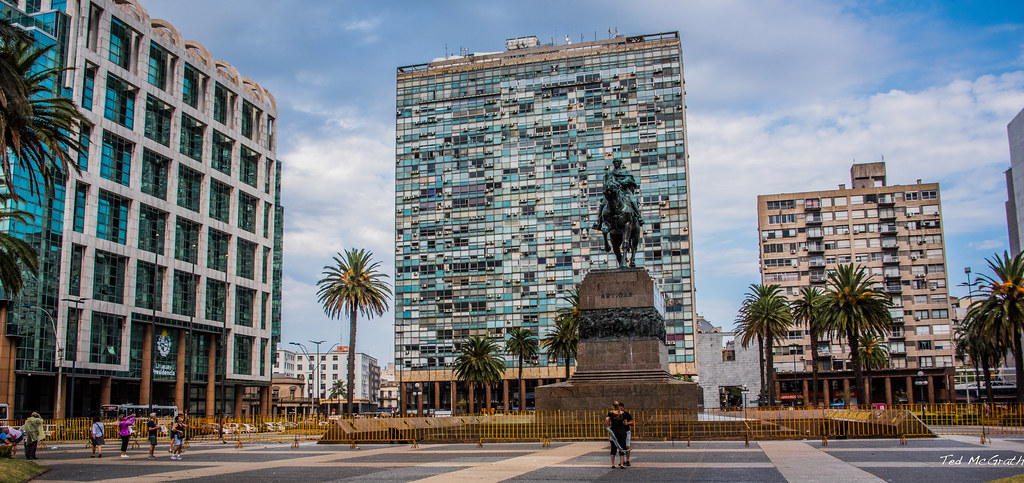Moving To Uruguay As An Expat part 2 – Part one is here.
Pros and Cons of Living in Uruguay
Living in Uruguay is an incredibly different experience to many places worldwide. The country has a very welcoming and relaxed attitude to life, with some pretty great cultural attractions too. As well as its laid-back nature, one of the biggest reasons why living in Uruguay is so fantastic for expats is because it’s incredibly affordable, actually getting more so by the day. Housing, food and drink, transportation, and pretty much everything else are incredibly cheap compared to other countries in the region.
For nature lovers and outdoors enthusiasts, Uruguay is an idyllic place to live. The country is filled with stunning landscapes and incredible wildlife, perfect for those who love getting out and exploring. However, there are still some challenges you need to take into consideration. Below are the pros and cons.

The weather
Uruguay has a temperate climate that contains four seasons. The average high during the summer months (December to February) is around 25°C (77°F). During the winter (June through August), it’s around 12°C (54°F). Rainfall is concentrated in the summer, and there are averages of 139 rainy days a year.
The People
Uruguayans are warm, welcoming, and fun-loving. They’re known to be very relaxed and laid back about things – something to keep in mind when you take on the “Gaucho” mentality while living here. That said, they also pride themselves on being very down-to-earth, honest and respectful.
The Cost Of Living
Uruguay is an impressively affordable place to live. There are plenty of ways you can save money, whether it’s finding deals on nice restaurants or taking advantage of the many free things to do in Uruguay. Though Uruguayan salaries are lower than those in the states, the cost of living is roughly half that of North America.
Flights to Uruguay Are Very Cheap
If you live near North America, it’s easy and affordable to fly to Uruguay. Most flights take about four hours or less to reach Montevideo (the capital) from Canada or the US, making it convenient. In fact, while most South American countries have seen a recent increase in airfare prices, Uruguay has bucked that trend and maintained some of the cheapest flights in the region.
The Healthcare System Is Top-Notch
Uruguay has a well-developed, high-quality healthcare system that offers excellent care for residents. In addition to public hospitals, there are also many private clinics and hospitals if you’re looking for additional treatment or specialized care. Moreover, costs are substantially lower than in North America.
The Varied Landscape
Uruguay is a small country, but it’s home to a fantastic variety of landscapes and cityscape types. There are plenty of different places for tourists and expats to visit in Uruguay – from the gorgeous beaches, luscious forests, and rolling green hills to quiet fishing towns, gorgeous colonial cities, and trendy, artsy beachside communities.

It’s Very Safe
Uruguay is consistently ranked at the top of the list for safety in South America, and it’s easy to see why when you spend some time here. Though there are cities like anyplace else (Montevideo can get a bit rowdy on weekends), most places – even larger cities – are very safe and peaceful.
Cons
The Language Barrier
Forget trying to learn Spanish if you’re moving abroad – Uruguay is one of the few Spanish-speaking countries where Portuguese is also an official language. This can make things difficult for newcomers who struggle with the language barrier. In fact, some locals in Uruguay don’t even speak Spanish, so be sure to brush up on your Portuguese before making a move.
Getting Around
Uruguay’s public transportation system is outdated and lacks the convenience of other countries in the region (like Argentina or Brazil). It can be difficult to get around if you don’t have your car – which you won’t since gas prices are high here as well. The trains don’t always run on schedule, and buses are often crowded.
Commute Times
If you don’t have a car, you can expect your commute to work to be about fifty minutes long each way. Many people in Uruguay have jobs as pharmacists, lawyers, and business professionals (especially those residing in Montevideo). If you’re someone who enjoys working out of the home for hours at a time, you’ll definitely want to reconsider your decision to move here.
Cost of Living
Uruguay is not a cheap place to live. In fact, it’s often cited as one of the most expensive countries in South America. Rent, food, and transportation costs are high compared to nearby countries. If you’re moving to Uruguay to live a comfortable life, be prepared to open your wallet.

5 Types of Visa Available in Uruguay
Many different visas can be obtained for countries worldwide, and Uruguay is no exception. There are several visa categories available in Uruguay, so it is essential to know which one you need before visiting the consulate. Here’s a breakdown of the five different visa types available in Uruguay.
1) Resident Visa (Residente Temporal)
This is the most popular visa in Uruguay, given out by both residents and non-residents of the country. This type of visa is suitable for those planning to move to Uruguay or stay for more than 90 days but less than five years. Applicants will need to prove that they have a clean criminal record, provide payslips, and demonstrate that they can financially support themselves.
2) Temporary Resident Visa
This visa is essentially the same as the first one, except it is only given to students of any age. A student must show proof of enrollment in an accredited school or university within Uruguay to qualify for this visa. Also, students are only allowed to work up to 20 hours a week during the semester and 40 hours a week during holidays.
3) Diplomatic Visa
This visa is given to people traveling to Uruguay on official government business. It is not available to the general public. Besides the usual documentation requirements, those traveling on a diplomatic visa will also need to provide an official letter from their country’s embassy or consulate.
4) Official Visa
This visa is for people traveling to Uruguay for official government business but are not representatives of their home country. Like the diplomatic visa, it is not available to the public. Applicants will need to provide an official letter from their country’s embassy or consulate, as well as a valid passport and proof of financial support.
5) Tourist Visa
This is the most common visa for people traveling to Uruguay for leisure. It is a single entry visa that is good for up to 90 days. To obtain this visa, applicants must prove that they have a passport valid for at least six months, provide financial support, and show that they plan to leave the country within 90 days.
Things to Know Before Moving To Uruguay

Although Uruguay has a reputation of being one of the safest and least corrupt countries in Latin America, there are some things you should know before moving here. The following list will prepare you and let you hit the ground running when relocating to Montevideo:
Uruguay Is Not Very Modern [Not Advanced]
Uruguay has made great strides towards becoming a modern country in recent years but is still very behind compared to the United States and Europe. Some examples include: – Only about half of the population has internet access – Not all homes have running water – Many roads are unpaved/dirt
Crime Here Is Low
Uruguay consistently ranks as one of the least corrupt and safest countries in Latin America. Taxes are high, but so is the quality of life. The country has a stable economy and does not experience many natural disasters such as hurricanes, earthquakes, etc. Some common crimes include: – Pick-pocketing/mugging – Credit card fraud – Drug trafficking
The Cost Of Living Here Is High
Uruguay has a relatively high cost of living, especially in the larger cities. Some things that will cost you more here than in other countries include: – Groceries – Utilities (electricity, water, internet, cable) – Rent, and many other things, to mention a few.
It Is Difficult To Obtain Citizenship
Uruguay has strict citizenship requirements, and it is difficult to obtain permanent residency (green card). If you are married to an Uruguayan, though, you can seek citizenship after five years of marriage. The main reason for the restrictions on obtaining citizenship is that Uruguay does not want an overabundance of foreign workers who may compete with locals for jobs and drive down wages.
The Language Barrier Can Be Difficult To Overcome
Although Spanish is the official language in Uruguay, there are significant dialect differences between Spanish spoken in Uruguay and other countries in Latin America. It may take some time to adjust and become comfortable with the local dialect. If you do not know any Spanish, I recommend taking a course before moving here.
Frequently Asked Questions about Uruguay
What is Uruguay Like?
Uruguay is a small country located in South America, next to Argentina and Brazil. Its population is over 3.5 million people, and the official language is Spanish. The climate is temperate, with some tropical and cold-weather regions. Uruguay has a rich cultural heritage, with its roots deeply tied to the history of the South American continent.
What is Uruguay best known for?
Uruguay is well known for its meat and yerba mate, a particular type of tea native to South America. Its capital city, Montevideo, is also known for being a UNESCO world heritage site because of its architecture, which is important in the history of Latin America.
What are some Uruguayan traditions?
The traditionally recognized national holiday in Uruguay is 25 de Agosto or August 25th. Parades and fireworks commemorate this. Other celebrations include the Gaucho festival, which celebrates Uruguay’s rural past. Some other traditions are mate tea drinking, deep-fried meat, soccer games, and late-night gatherings on street corners to watch soccer games.

What is Uruguayan cuisine like?
The most traditional Uruguayan dish is the Asado, a barbecue that features different types of meat. Other popular words include chivitos (a sandwich with grilled steak, bacon, cheese, and eggs), empanadas (pastries filled with meats or vegetables), and locro (a stew made with corn, beans, and meat). For dessert, there are many different types of pastries filled with dulce de leche.
Is Uruguay safe to visit?
Yes! Although it’s a bit smaller than the United States, Uruguay is still an easy place to travel around. The people are very friendly and willing to help tourists who may be confused or lost. The only thing to be aware of is that there is some crime in the larger cities, so it’s always best to be aware of your surroundings and not leave valuable belongings unguarded. Other than that, Uruguay is a safe place to visit.
Conclusion
Uruguay is a safe and welcoming place to live, with a low crime rate and friendly locals. It’s easy to settle into expat life quickly, though you may find the pace of life is slower than you’re used to. You’ll need to learn new skills since the US dollar doesn’t go very far here! Nonetheless, refer to this guide for more information about the pros and cons of moving to Uruguay as an expat.


